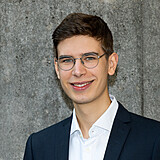
Efficient tuning of quantum devices using machine learning
Lucas Schorling (Ph.D. Student)
The critical challenge in the development of scalable quantum technologies, such as quantum computers, is the increasingly complex and time-consuming task of characterizing and tuning a large number of quantum devices. As the scale of these technologies expands, traditional methods of characterization become intractable, underscoring the urgent need for efficient automation. To address this, we propose to develop a real-time Bayesian machine learning algorithm that integrates information theory with probabilistic deep-generative models. This innovative combination will enable the algorithm to intelligently select the most informative measurements to perform next, thereby streamlining the characterization process. Preliminary results indicate that our approach significantly outperforms standard grid scan methods, reducing both the number of measurements and the time required for characterization. Importantly, our work goes beyond the conventional use of machine learning for data search and analysis, and instead demonstrates its utility in automating the actual measurements necessary for device characterization. By implementing this Bayesian approach, we aim to lay the foundation for learning-based automated measurement techniques, opening the door for the large-scale, efficient deployment of quantum technologies.
| Primary Host: | Michael A. Osborne (University of Oxford) |
| Exchange Host: | Florian Marquardt (Max Planck Institute for the Science of Light & University of Erlangen-Nuremberg) |
| PhD Duration: | 01 October 2023 - 30 September 2026 |
| Exchange Duration: | - Ongoing - Ongoing |
